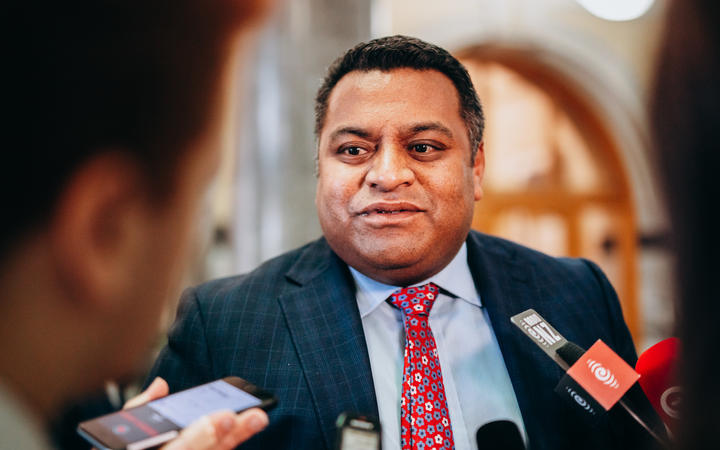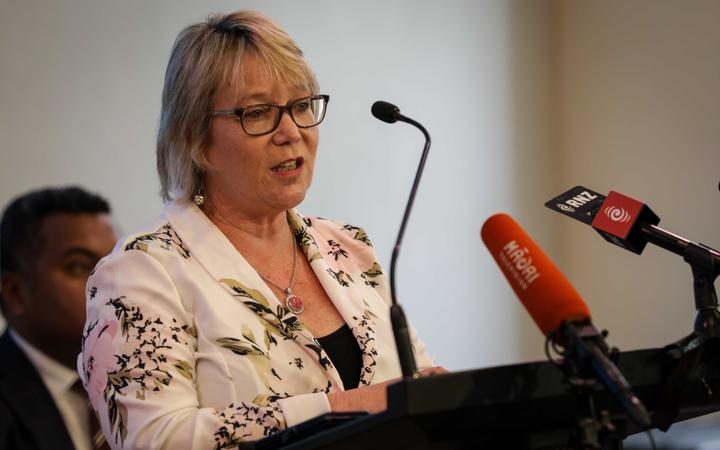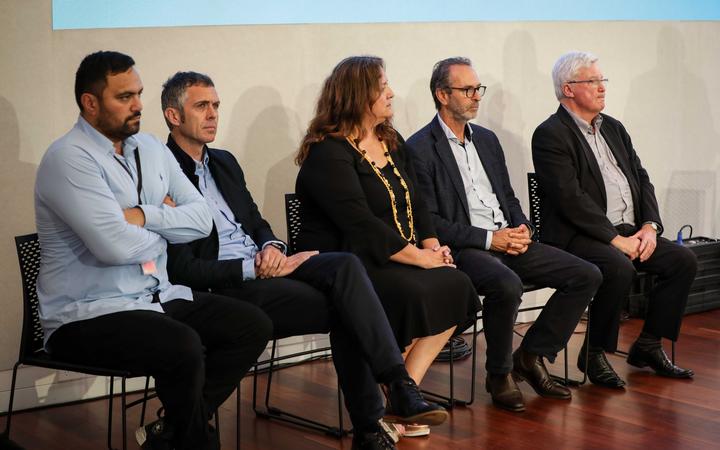
Former minister and New Zealand First MP Tracey Martin has been named as the head of a new governance group looking at the possible merger of state broadcasters RNZ and Television New Zealand, into a new public media entity.
Martin said her job was to ensure the group had everything it needed to come up with options that worked to offer Broadcasting and Media Minister Kris Faafoi within the timeframe needed.
The Strong Public Media Business Case Governance Board will oversee the completion of a business case into forming the entity.
Other members include: Glen Scanlon, Michael Anderson, Sandra Kailahi, Bailey Mackey, William Earl John Quirk and Dr Trisha Dunleavy.

"We understand that a strong media requires both public and private media and we do have a responsibility to New Zealanders to ensure that media entities that we own and fund are fit for purpose for the 21st century."
The potential new entity will operate with a mixed funding model: drawing part of its revenue from commercial sources, and part from government funding, he said.
It is expected to operate in a way that complements and collaborates with private media.
"[The] Government is committed to ensuring public media is fit for the future and able to thrive and adapt amid the changing media landscape.
"Members of the Governance Group bring a wide range of expertise to their roles. They were chosen for their expertise in public broadcasting, private media, the Māori media sector, government policy, public engagement, change management and business case processes."
The group will also lead work on a charter for the potential new entity and members will remain appointed until Cabinet considers the outcome of the business case.
"Deloitte has been contracted by the Ministry of Culture and Heritage to complete the work on the business case. Cabinet has asked the business case on how a potential new media entity would operate with a mixed funding model, gaining part of its revenue from commercial sources and part from government funding, produce content across a variety of media forms and have editorial and operational independence from government enshrined in legislation."
Faafoi said the new entity would provide content across a variety of platforms and have full editorial and operational independence from the Government.
This is a unique opportunity and the right time to make decisions about the whole of our public media system for all New Zealanders."

"RNZ and TVNZ are high-performing entities that have served New Zealanders well. They provide a strong basis on which to build for the future.
"Alongside work to assess the option of creating a new public media entity, Minister for Māori Development Willie Jackson is leading work to enhance support for the Māori media sector.
"This is a unique opportunity and the right time to make decisions about the whole public media system."
Martin said local media binds our society together and makes democracy work.
"New Zealanders rely on local media for important information they know they can trust."
"We want to deliver for him and for New Zealand the best possible advice to enable him and his Cabinet colleagues to make the decision so that this can move forward with pace for New Zealand."
The business case for Strong Public Media is expected to be completed by mid-2021, and before the end of the year, Cabinet will be advised on the option of a new public media entity before the end of the year.












